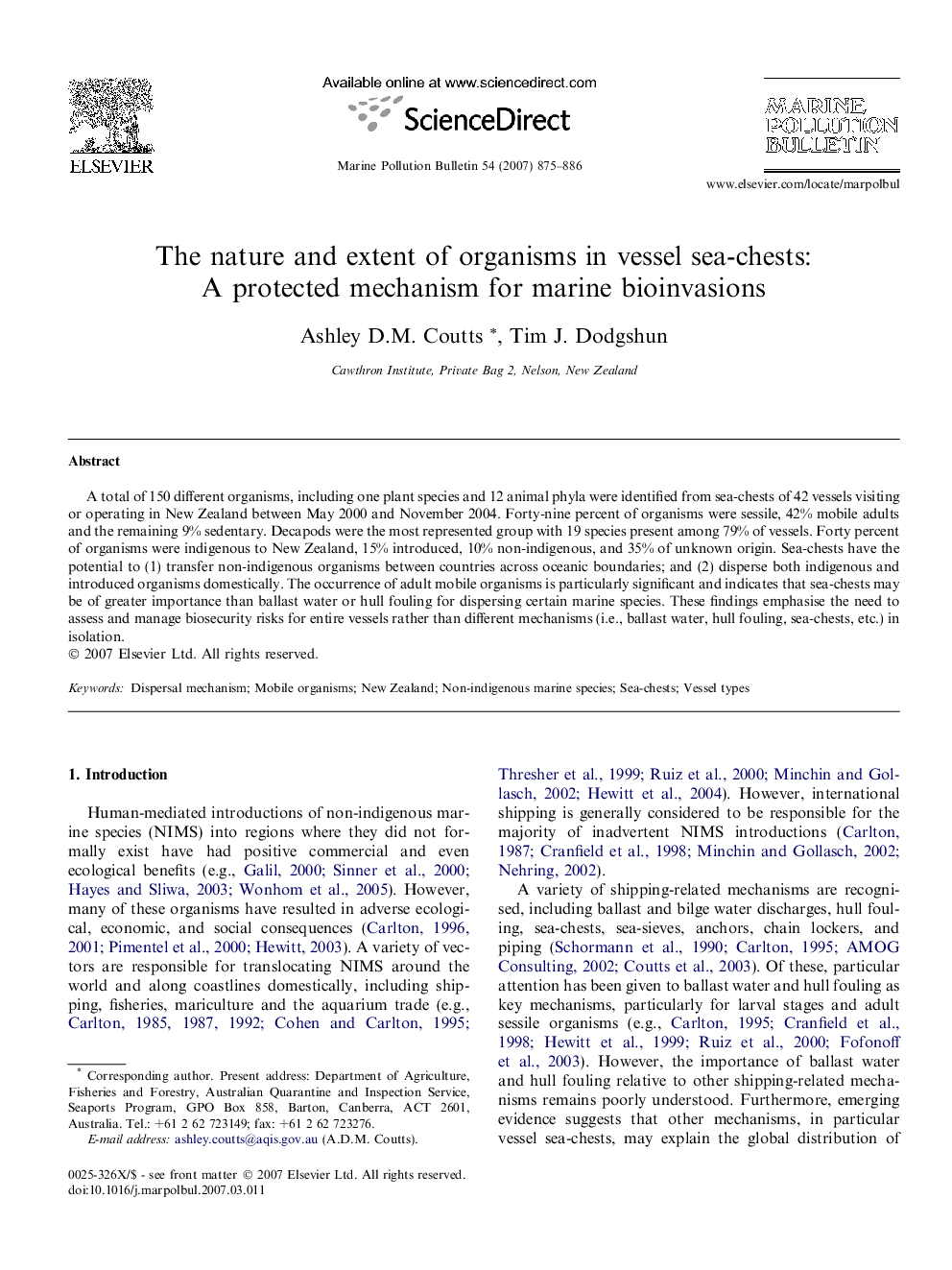| Article ID | Journal | Published Year | Pages | File Type |
|---|---|---|---|---|
| 4477431 | Marine Pollution Bulletin | 2007 | 12 Pages |
A total of 150 different organisms, including one plant species and 12 animal phyla were identified from sea-chests of 42 vessels visiting or operating in New Zealand between May 2000 and November 2004. Forty-nine percent of organisms were sessile, 42% mobile adults and the remaining 9% sedentary. Decapods were the most represented group with 19 species present among 79% of vessels. Forty percent of organisms were indigenous to New Zealand, 15% introduced, 10% non-indigenous, and 35% of unknown origin. Sea-chests have the potential to (1) transfer non-indigenous organisms between countries across oceanic boundaries; and (2) disperse both indigenous and introduced organisms domestically. The occurrence of adult mobile organisms is particularly significant and indicates that sea-chests may be of greater importance than ballast water or hull fouling for dispersing certain marine species. These findings emphasise the need to assess and manage biosecurity risks for entire vessels rather than different mechanisms (i.e., ballast water, hull fouling, sea-chests, etc.) in isolation.
